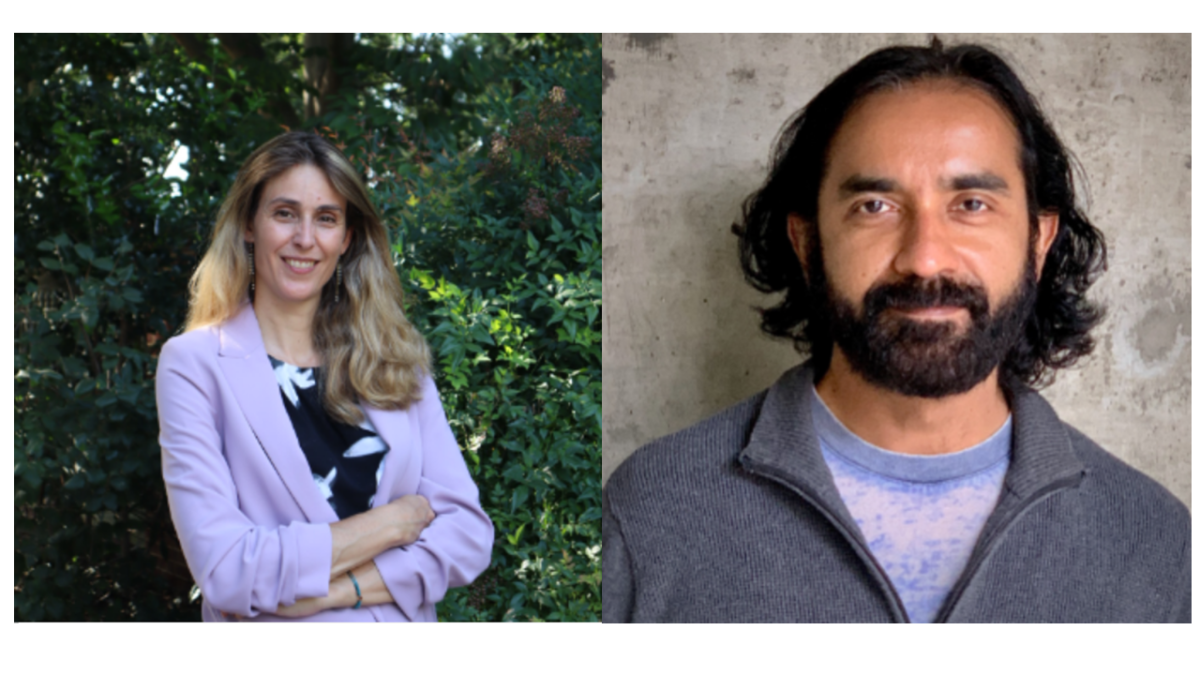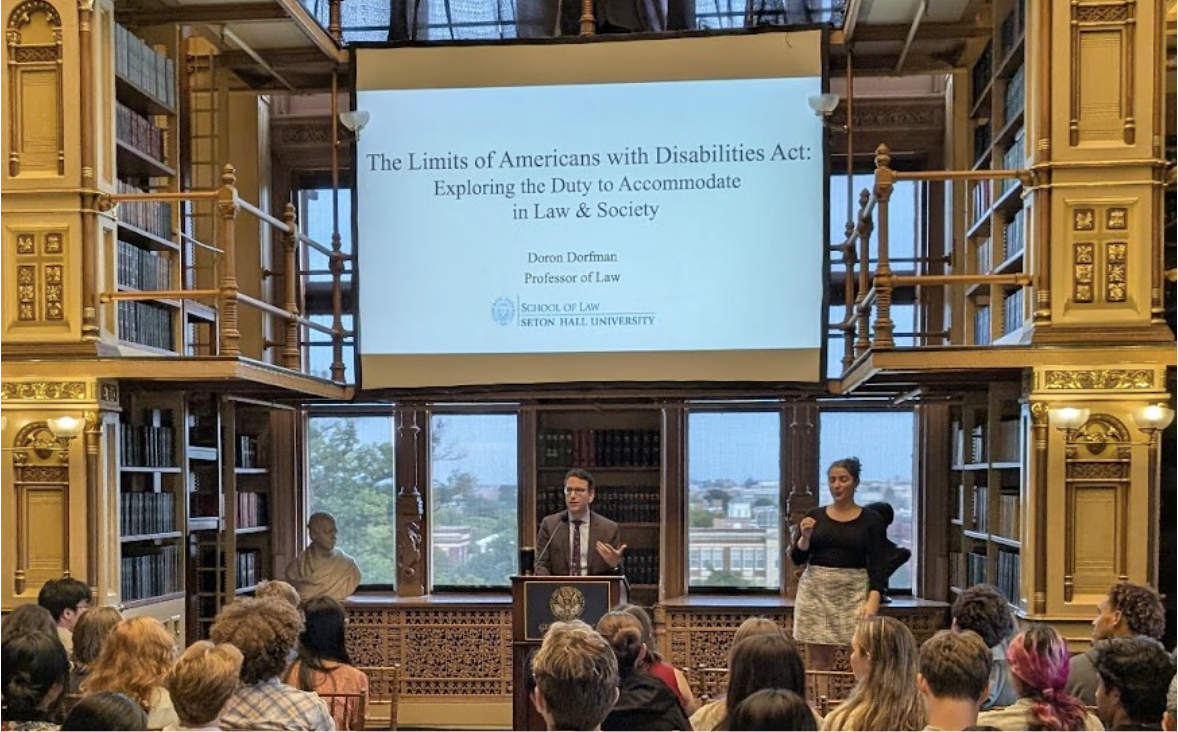Georgetown professors Alejandra Hurtado de Mendoza and Sreejith Nair, who both received the 2024 John F. Potter, MD, Award in recognition of their achievements in the fight against cancer, delivered lectures on their respective areas of cancer research in an event hosted by the Georgetown University Medical Center and the Lombardi Comprehensive Cancer Center Oct. 18.
Hurtado de Mendoza’s lecture, titled “Addressing Disparities in Hereditary Cancer Risk Assessment, Genetic Counseling and Genetic Testing Uptake Through Community-Engaged Research,” focused on efforts to increase awareness of cancer screening and genetic testing benefits, specifically in underserved Hispanic and Latino communities in the United States.
Hurtado de Mendoza and her team aim to improve access to information and health services for minority populations through community-engaged approaches like the CONTIGO study, which focuses on providing lifesaving information for Latina women at risk of hereditary breast and ovarian cancers (HBOC).
According to Hurtado de Mendoza, Latina women are less likely to be aware of the available services and also less likely to be screened for these types of cancers or referred to genetic counseling services.
“Genetic counseling and testing is mostly restricted to specialty settings and does not reach minoritized populations who receive services at community settings,” Hurtado de Mendoza wrote to The Hoya. “Thanks to the work of the community-based organizations that are partnering with us in the study, we have been able to reach and screen nearly 5,000 Latinas in the community.”
To spread awareness about cancer risk, Hurtado de Mendoza’s team is working to produce what she calls “telenovela-style” videos, similar to those of popular Hispanic soap operas, that target Hispanic outdoor workers in the industries of agriculture, construction and landscaping with the goal of appealing to audiences through familiar media styles and culturally sensitive interventions.
The project, which aims to increase awareness about skin cancer and encourage protective behaviors, is being conducted in collaboration with IMPACT Melanoma, a non-profit organization aiming to reduce the incidence of skin cancer, and a community advisory board.
Though she believes that the collaboration will make more people aware of available resources, Hurtado de Mendoza noted that there are still policy barriers that prevent equitable access.
“Overcoming healthcare access barriers that the Latino population face has been challenging. Partnering with community-based organizations has been instrumental to navigate participants to risk management strategies,” Hurtado de Mendoza wrote.
Nair’s lecture, titled “Beyond the Known: Exploring Hidden Targets and Mechanisms of Classic Cancer Drugs,” highlighted his lab’s research on gene regulation methods and how they can be harnessed for new therapy methods.
According to Nair, recently discovered information about transcription, a step in the gene expression process, has created new domains in cancer research.
“An exciting development in the field is that the transcription machinery is organized as membraneless structures within the cells,” Nair wrote to The Hoya.
His team focused on two components of these membraneless structures: disordered domains of transcription factors and RNA molecules in general.
“Close to 90% of transcription factors harbor long disordered domains, and most RNA in the cells are non-coding,” Nair said.
The primary interest in his team’s research is to understand how precise gene regulation is achieved in response to signaling events and the specific roles disordered protein domains and RNAs play in the process.
“We hope that our work will help to bring clarity to the regulation and functional roles of these proteins and RNA molecules,” Nair said.
He hopes that through extensive research, his team can better understand the obscure role of these components in forming membraneless organelles and how they can be used to treat cancer.
Nair added that his research into the basic mechanisms of gene regulation provided insight into the effectiveness of classic chemotherapy drugs.
“This new understanding will help us to address lingering problems in cancer therapeutics, such as overcoming chemotherapy resistance, identifying reliable biomarkers to predict drug responsiveness and developing new tools to study drug interactions,” Nair said.
According to Nair, one of the keys to good science is having a well-rounded research team. He explained how a strong work ethic, resilience, curiosity and passion are core attributes in carrying out biomedical research.
“While science is not easy, it becomes incredibly rewarding for those willing to invest time and effort,” Nair wrote. “I hope our discoveries will make science appealing to more students and inspire them to pursue careers in this area.”




